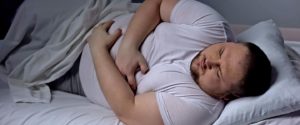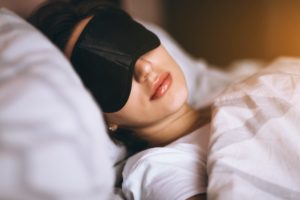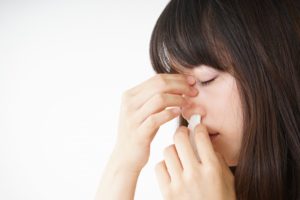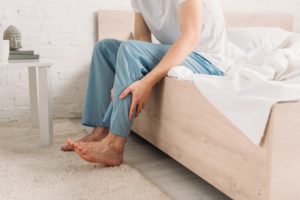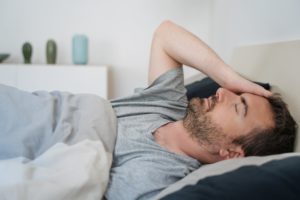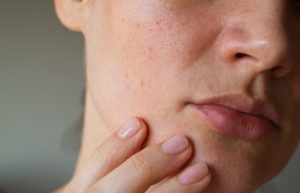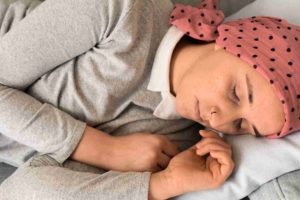Progesterone for Sleep: Everything You Need to Know
Low levels of the hormone progesterone can cause sleep difficulties, including insomnia, sleep apnea, and night sweats. This is especially common in individuals who have reached menopause, as progesterone levels decrease. While progesterone supplementation is not a first-line treatment for sleep problems, it may be beneficial for some who are experiencing hormonal changes.
Is Your Troubled Sleep a Health Risk?
A variety of issues can cause problems sleeping. Answer three questions to understand if it’s a concern you should worry about.
What Is Progesterone?
Progesterone is a naturally occurring sex hormone that plays an important role in the menstrual cycle and helps maintain the uterus during pregnancy. Doctors may prescribe progesterone—either in its natural or synthetic form—for a variety of purposes.
- Menopausal hormone therapy: Formerly known as hormone replacement therapy, some individuals take progesterone pills as part of menopausal hormone therapy, which is prescribed to alleviate menopausal symptoms such as hot flashes and night sweats.
- Contraception: Because progesterone can help prevent ovulation, it is used by itself or in combination with other hormones in birth control pills, injections, rings, and intrauterine devices (IUDs).
- Fertility treatments: Progesterone may be used in fertility treatments, and it is sometimes prescribed to re-initiate periods in people who are of childbearing age but have stopped menstruating.
- Gender-affirming care: Occasionally, progesterone is used to suppress testosterone production for transgender women—but it is not typically considered the best option for suppressing male sex hormones and may pose unnecessary risks.
Symptoms of Low Progesterone
In years leading to menopause, the body naturally begins to produce less progesterone, and after a person’s periods stop, progesterone levels remain low. Low progesterone is one of several hormonal changes that contribute to menopausal symptoms, which include:
- Hot flashes and night sweats
- Flushed skin
- Mood swings
- Low sex drive
Additionally, low progesterone can contribute both directly and indirectly to the sleep problems that are common during and after menopause. These include insomnia, a sleep disorder that can make it hard to fall asleep and stay asleep, and sleep-breathing disorders, such as sleep apnea.
How Progesterone Affects Sleep
Research suggests that progesterone has a beneficial effect on sleep in certain populations, such as post-menopausal individuals and people with sleep apnea. Experts have offered several explanations for why this might be the case, including:
- Progesterone decreases menopausal symptoms
- Progesterone may promote sleepiness and reduce anxiety
- Progesterone appears to increase your respiratory drive, which may help reduce sleep apnea symptoms

Who Should Consider Taking Progesterone for Sleep?
Progesterone is not currently prescribed for the sole purpose of improving sleep. That said, people with sleep problems who also have symptoms or conditions commonly treated by progesterone should talk to their doctors about whether progesterone is a good choice for them, including:
- People who have reached menopause and who have had not a hysterectomy
- Individuals interested in preventing pregnancy with hormonal forms of contraception
- People with irregular periods
“Menopause can cause a lot of uncomfortable symptoms, like night sweats, that can get in the way of a good night’s rest. For certain patients, treating their menopause symptoms with medications like progesterone can help patients sleep through the night.”
Dr. Dustin Cotliar, Sleep Physician
Talking to Your Doctor About Progesterone and Sleep
If you suspect hormone changes are contributing to your sleep difficulties, talk to your doctor about various treatment options, including progesterone. To understand whether progesterone would be a good treatment option for you, your doctor might ask about:
- Any vitamins, supplements, or medications you’re currently taking
- If you have a personal or family history of reproductive or breast cancers
- If you are pregnant, planning to become pregnant, or breastfeeding
- If you have experienced a miscarriage or had irregular, heavy, or overly painful periods
- If you intend to undergo any surgery while taking progesterone
Talk with your doctor about the possible side effects of progesterone, including irritability, fatigue, dizziness, bloating, and breast tenderness.

Still have questions? Ask our community!
Join our Sleep Care Community — a trusted hub of sleep health professionals, product specialists, and people just like you. Whether you need expert sleep advice for your insomnia or you’re searching for the perfect mattress, we’ve got you covered. Get personalized guidance from the experts who know sleep best.
References
9 Sources
-
Cable J. & Grider M. ( 2023 May). Physiology, Progesterone. StatPearls., Retrieved September 22, 2023, from
https://www.ncbi.nlm.nih.gov/books/NBK558960/ -
A.D.A.M Medical Encyclopedia. (2019 December). Hormone Replacement Therapy. MedlinePlus., Retrieved September 22, 2023, from
https://medlineplus.gov/hormonereplacementtherapy.html -
A.D.A.M Medical Encyclopedia. (2023 March). Progesterone Vaginal. MedlinePlus., Retrieved September 23, 2023, from
https://medlineplus.gov/druginfo/meds/a623013.html -
Tangpricha, V. & Safer, J. (2023 October). Transgender women: Evaluation and management. In K. Martin (Ed.). UpToDate., Retrieved September 22, 2023, from
https://www.uptodate.com/contents/transgender-women-evaluation-and-management -
A.D.A.M. Medical Encyclopedia. (2021 July). Menopause. MedlinePlus., Retrieved September 24, 2023, from
https://medlineplus.gov/ency/article/000894.htm -
Andersen, M. L., Bittencourt, L. R., Antunes, I. B., & Tufik, S. (2006). Effects of progesterone on sleep: a possible pharmacological treatment for sleep-breathing disorders?. Current medicinal chemistry, 13(29), 3575–3582.
https://pubmed.ncbi.nlm.nih.gov/17168724/ -
Prior J. C. (2018). Progesterone for treatment of symptomatic menopausal women. Climacteric : the journal of the International Menopause Society, 21(4), 358–365.
https://pubmed.ncbi.nlm.nih.gov/29962247/ -
Lee, J., Han, Y., Cho, H. H., & Kim, M. R. (2019). Sleep Disorders and Menopause. Journal of menopausal medicine, 25(2), 83–87.
https://pubmed.ncbi.nlm.nih.gov/31497577/ -
Louis, J. & Pien, G. (2023 October). Obstructive sleep apnea in pregnancy. In V. Berghella, N. Collop, A. Chakrabarti, & G. Finlay (Ed.). UpToDate., Retrieved September 23, 2023, from
https://www.uptodate.com/contents/obstructive-sleep-apnea-in-pregnancy




